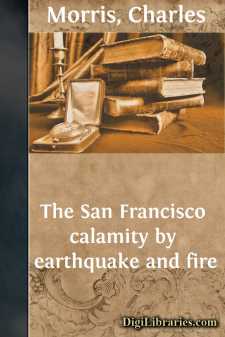Categories
- Antiques & Collectibles 13
- Architecture 36
- Art 48
- Bibles 22
- Biography & Autobiography 813
- Body, Mind & Spirit 142
- Business & Economics 28
- Children's Books 17
- Children's Fiction 14
- Computers 4
- Cooking 94
- Crafts & Hobbies 4
- Drama 346
- Education 46
- Family & Relationships 57
- Fiction 11829
- Games 19
- Gardening 17
- Health & Fitness 34
- History 1377
- House & Home 1
- Humor 147
- Juvenile Fiction 1873
- Juvenile Nonfiction 202
- Language Arts & Disciplines 88
- Law 16
- Literary Collections 686
- Literary Criticism 179
- Mathematics 13
- Medical 41
- Music 40
- Nature 179
- Non-Classifiable 1768
- Performing Arts 7
- Periodicals 1453
- Philosophy 64
- Photography 2
- Poetry 896
- Political Science 203
- Psychology 42
- Reference 154
- Religion 513
- Science 126
- Self-Help 84
- Social Science 81
- Sports & Recreation 34
- Study Aids 3
- Technology & Engineering 59
- Transportation 23
- Travel 463
- True Crime 29
Historical Tales, Vol. 6 (of 15) The Romance of Reality. French.
by: Charles Morris
Description:
Excerpt
THE HUNS AT ORLEANS.
On the edge of a grand plain, almost in the centre of France, rises a rich and beautiful city, time-honored and famous, for it stood there before France had begun and while Rome still spread its wide wings over this whole region, and it has been the scene of some of the most notable events in French history. The Gauls, one of whose cities it was, named it Genabum. The Romans renamed it Aurelian, probably from their Emperor Aurelian. Time and the evolution of the French language wore this name down to Orleans, by which the city has for many centuries been known.
The broad Loire, the longest river of France, sweeps the foot of the sloping plain on which the city stands, and bears its commerce to the sea. Near by grows a magnificent forest, one of the largest in France, covering no less than ninety-four thousand acres. Within the city appears the lofty spires of a magnificent cathedral, while numerous towers rise from a maze of buildings, giving the place, from a distance, a highly attractive aspect. It is still surrounded by its mediæval walls, outside of which extend prosperous suburbs, while far and wide beyond stretches the fertile plain.
Such is the Orleans of to-day. In the past it was the scene of two striking and romantic events, one of them associated with the name of Joan of Arc, the most interesting figure in French history; the other, which we have now to tell, concerned with the terrible Attila and his horde of devastating Huns, who had swept over Europe and threatened to annihilate civilization. Orleans was the turning-point in the career of victory of this all-conquering barbarian. From its walls he was driven backward to defeat.
CITY OF ORLEANS.
Out from the endless wilds of Scythia had poured a vast swarm of nomad horsemen, ill-favored, fierce, ruthless, the scions of the desert and seemingly sworn to make a desert of Europe. They were led by Attila, the "Scourge of God," as he called himself, in the tracks of whose horse's hoofs the grass could never grow again, as he proudly boasted.
Writers of the time picture to us this savage chieftain as a deformed monster, short, ill-formed, with a large head, swarthy complexion, small, deep-seated eyes, flat nose, a few hairs in place of a beard, and with a habit of fiercely rolling his eyes, as if to inspire terror. He had broad shoulders, a square, strong form, and was as powerful in body as he was ready and alert in mind. The man had been born for a conqueror, and Europe was his prey.
The Scythians adored the god of war, whom they worshipped under the shape of an iron cimeter. It was through the aid of this superstition that Attila raised himself to dominion over their savage and tameless hordes. One of their shepherds, finding that a heifer was wounded in the foot, followed the track of blood which the animal had made, and discovered amid the long grass the point of an ancient sword. This he dug from the earth in which it was buried and presented to Attila. The artful chief claimed that it was a celestial gift, sent to him by the god of war, and giving him a divine claim to the dominion of the earth....












